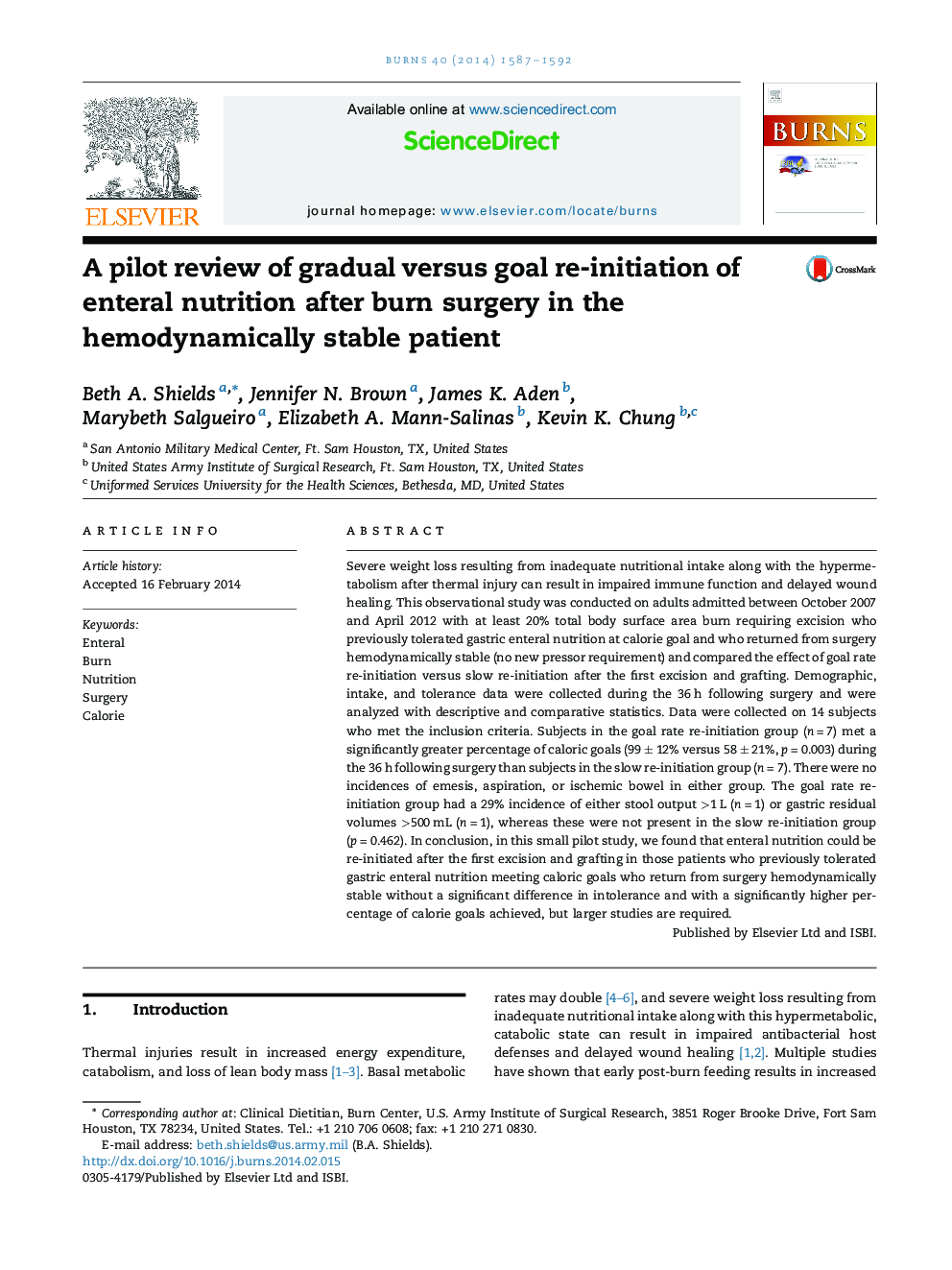| Article ID | Journal | Published Year | Pages | File Type |
|---|---|---|---|---|
| 3104387 | Burns | 2014 | 6 Pages |
Severe weight loss resulting from inadequate nutritional intake along with the hypermetabolism after thermal injury can result in impaired immune function and delayed wound healing. This observational study was conducted on adults admitted between October 2007 and April 2012 with at least 20% total body surface area burn requiring excision who previously tolerated gastric enteral nutrition at calorie goal and who returned from surgery hemodynamically stable (no new pressor requirement) and compared the effect of goal rate re-initiation versus slow re-initiation after the first excision and grafting. Demographic, intake, and tolerance data were collected during the 36 h following surgery and were analyzed with descriptive and comparative statistics. Data were collected on 14 subjects who met the inclusion criteria. Subjects in the goal rate re-initiation group (n = 7) met a significantly greater percentage of caloric goals (99 ± 12% versus 58 ± 21%, p = 0.003) during the 36 h following surgery than subjects in the slow re-initiation group (n = 7). There were no incidences of emesis, aspiration, or ischemic bowel in either group. The goal rate re-initiation group had a 29% incidence of either stool output >1 L (n = 1) or gastric residual volumes >500 mL (n = 1), whereas these were not present in the slow re-initiation group (p = 0.462). In conclusion, in this small pilot study, we found that enteral nutrition could be re-initiated after the first excision and grafting in those patients who previously tolerated gastric enteral nutrition meeting caloric goals who return from surgery hemodynamically stable without a significant difference in intolerance and with a significantly higher percentage of calorie goals achieved, but larger studies are required.
